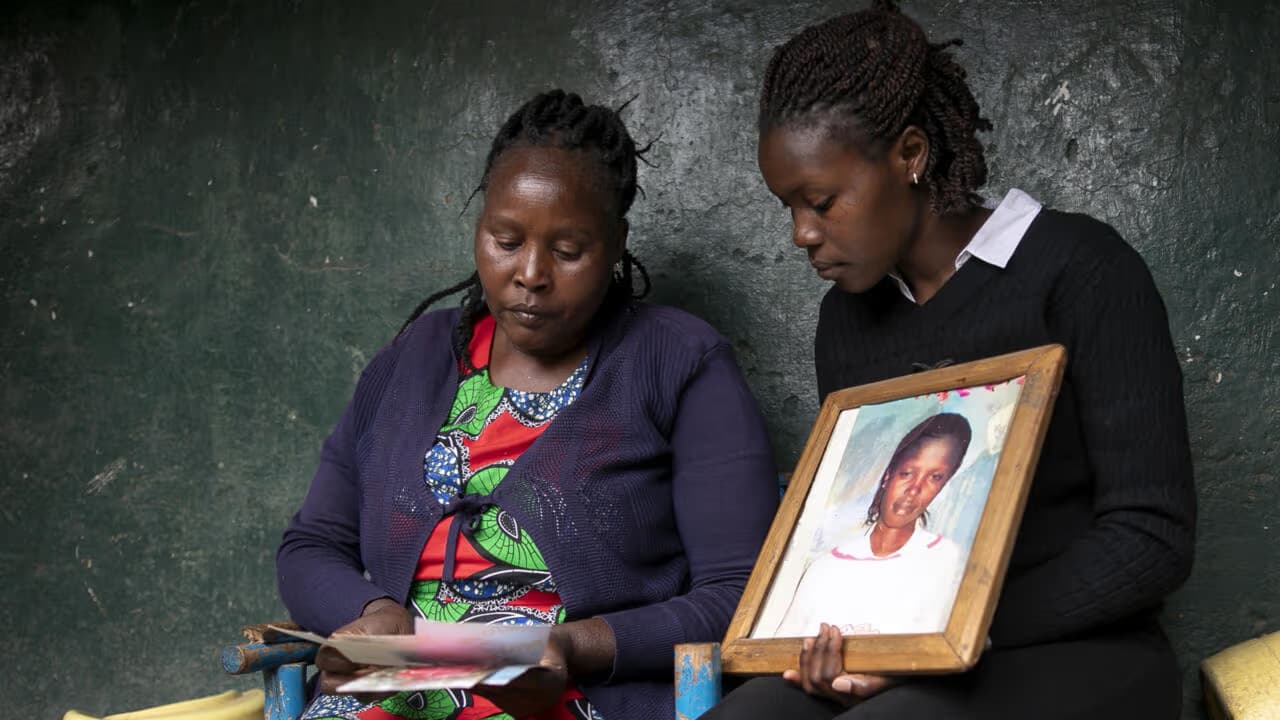We're loading the full news article for you. This includes the article content, images, author information, and related articles.
Thirteen years after Agnes Wanjiru's murder in Nanyuki, her family expresses renewed hope for justice following a Kenyan arrest warrant and direct engagement with UK officials, pushing for the extradition of a former British soldier.

Esther Njoki, the niece and spokesperson for the family of Agnes Wanjiru, returned to Kenya on Thursday, October 16, 2025, with renewed hope for justice in her aunt's 2012 murder. Njoki's four-day visit to the United Kingdom included crucial meetings with British Defence Secretary John Healey, Members of Parliament (MPs) in the House of Commons, and human rights activists. The family is pressing for the swift extradition of former British soldier Robert James Purkiss, 38, who has been named as the suspect and for whom a Kenyan court issued an arrest warrant in September 2025.
Njoki, who was eight years old when her aunt was killed, emphasised the family's determination to see accountability. "We are urging him and the government to do everything in their power to ensure the man is arrested, extradited to Kenya, and faces trial without further delay," Njoki stated, highlighting the long-standing pain and trauma endured by Wanjiru's family, particularly her now 13-year-old daughter.
Agnes Wanjiru, a 21-year-old hairdresser and mother, disappeared in Nanyuki in March 2012 after a night out with British soldiers. Her body was discovered several weeks later in a septic tank at the Lion's Court Hotel, where she was last seen. A post-mortem examination concluded she died from stab wounds to her chest and abdomen, with evidence of beating.
The case gained significant public attention and outrage in 2021 when The Sunday Times reported that a soldier had confessed to comrades about killing Wanjiru and alleged that the murder was reported to military superiors but no action was taken. This revelation prompted the Directorate of Criminal Investigations (DCI) in Kenya to reopen the case.
The murder has strained diplomatic ties between Kenya and the UK and has become a painful symbol of injustice. The British Army Training Unit Kenya (BATUK) has a permanent base in Nanyuki, and the conduct of British troops in Kenya has been a recurring concern.
In September 2025, a Kenyan court formally issued an arrest warrant for Robert James Purkiss, a former British soldier, charging him with murder. Kenyan prosecutors have indicated their intent to initiate extradition proceedings to bring Purkiss to Kenya for trial.
Defence Secretary John Healey, who met Wanjiru's family in Kenya in April 2025, reiterated the UK government's "steadfast support for her family's long and painful fight for justice" and pledged continued support for the Kenyan investigation.
The UK-Kenya defence cooperation agreement dictates that jurisdiction for investigating such murders lies with Kenyan authorities. However, human rights lawyers in London have called for reforms to laws that they argue protect soldiers from prosecution abroad.
Esther Njoki, Wanjiru's niece, has become a vocal advocate for justice, driven by the desire for accountability for her aunt's daughter. She believes that British soldiers have historically been protected by the internal systems of the army.
During her meeting with Defence Secretary Healey on Tuesday, October 14, 2025, Njoki urged the UK government to ensure Purkiss is arrested and extradited without further delay. Healey acknowledged the significant progress made, with the case file now with prosecutors and a charging decision reached.
The family's legal representatives, Leigh Day, have been actively pressuring the Ministry of Defence to investigate Wanjiru's death properly.
The case's progression is expected to set a significant precedent for how alleged crimes by foreign military personnel in Kenya are handled. The commitment of the Labour government to a swift resolution, as urged by Agnes Wanjiru's family, will be closely scrutinised.
Extradition in such a case could take up to five years following any arrest made in the UK, according to barrister Ben Keith, who specialises in international cases.
While a suspect has been named and an arrest warrant issued, the actual extradition process and its timeline remain uncertain. The family fears that progress could falter under a different UK administration.
Allegations of a cover-up by British military officials in the initial stages of the investigation have been a significant point of controversy. The Sunday Times reported in October 2021 that the military received reports of the crime almost immediately after Wanjiru's death but allegedly opted to cover it up.
All eyes will be on the formal extradition request from Kenya and the subsequent legal proceedings in British courts. The commitment of the UK government to a swift resolution, as urged by Agnes Wanjiru's family, will be closely scrutinised. The outcome of this case will have significant implications for justice in cases involving foreign military personnel in Kenya.
Keep the conversation in one place—threads here stay linked to the story and in the forums.
Sign in to start a discussion
Start a conversation about this story and keep it linked here.
Other hot threads
E-sports and Gaming Community in Kenya
Active 9 months ago
The Role of Technology in Modern Agriculture (AgriTech)
Active 9 months ago
Popular Recreational Activities Across Counties
Active 9 months ago
Investing in Youth Sports Development Programs
Active 9 months ago